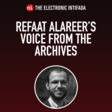10 September 2012
In response to the California Assembly’s recent passage of a resolution calling on university administations to address what it calls “anti-Semitism” on California campuses, a group of academics have written an open letter of opposition to each of the 66 Assemblymembers who authored and/or sponsored the resolution.
The non-binding resolution, HR 35, which was adopted without debate on 28 August, contains language which civil rights groups, activists, students and professors see as a thinly-disguised scheme to limit Palestine solidarity activism and curb discussion of Israeli policies in the classroom.
In a recent post on Mondoweiss, reporter Alex Kane revealed that the Simon Wiesenthal Center — the ultra-right-wing Zionist organization at the head of building a “museum of tolerance” on top of an ancient Muslim cemetery, which is being steadlily destroyed, in Jerusalem — helped draft the language in HR 35. Zionist organizations and Israel lobby groups have been relentlessly attempting to repress free speech and Palestine solidarity activism on campuses across the US; trying to stifle debate and discussion about Israeli policies by claiming that such speech is “anti-Semitic.”
“A clear threat to academic freedom”
In their open letter, California Scholars for Academic Freedom (CSAF) say that “The resolution poses a clear threat to academic freedom in the University of California and the California State University systems. …HR 35 does not create new law, but it calls upon university administrators to deny First Amendment rights to students and faculty.”
Members of CSAF are sending the letter to the resolution’s co-authors, Assemblymembers Linda Halderman (R) and Bonnie Lowenthal (D), and their local representatives across the state.
Dr. David Klein, who, as The Electronic Intifada has reported, was at the center of an attack campaign by Zionist groups who sought (unsuccessfully) to have him punished by his administration at California State University-Northridge and the state of California for his outspoken criticism of Israeli policies and organizing against a study in Israel program, was one of the signatories of the letter. Klein is also a member of the California Scholars for Academic Freedom.
“California Assembly House Resolution 35 is direct assault against academic freedom and the First Amendment,” Klein wrote in an email to The Electronic Intifada on Monday morning.
“If HR-35 is enforced by university administrators, it will prohibit legitimate criticisms of the government of Israel on all UC and CSU campuses. The motivation behind this is anti-Arab racism and antipathy toward the Palestinian people, who are the victims of Israel’s ongoing ethnic cleansing and apartheid system of laws.”
Open letter
The full text of the open letter by California Scholars for Academic Freedom is below (names of the signatories can be found on the web page link to the open letter). The Electronic Intifada will continue to follow this story as it develops.
An Open Letter From California Scholars for Academic Freedom
To California Assemblymembers Linda Halderman, Bonnie Lowenthal, and 66 Co-authors of California House Resolution 35:
Coauthors: Assembly Members Achadjian, Beall, Block, Blumenfield, Butler, Cook, Fong, Furutani, Galgiani, Gatto, Gordon, Hagman, Mansoor, Miller, Monning, Portantino, and Williams, Alejo, Allen, Atkins, Bill Berryhill, Bonilla, Brownley, Buchanan, Charles Calderon, Campos, Carter, Cedillo, Chesbro, Conway, Davis, Dickinson, Donnelly, Eng, Feuer, Fletcher, Fuentes, Beth Gaines, Garrick, Gorell, Harkey, Hayashi, Roger Hernández, Hueso, Huffman, Jeffries, Jones, Lara, Ma, Mendoza, Mitchell, Morrell, Nestande, Olsen, Pan, Perea, John A. Pérez, V. Manuel Pérez, Silva, Skinner, Smyth, Solorio, Swanson, Torres, Valadao, and Wagner
Dear California Assembly Representatives;
California Scholars for Academic Freedom** opposes in the strongest possible terms House Resolution 35, a resolution which lists each of you as introducers or co-authors, and which was approved, with no debate, by the California State Assembly on August 28, 2012. The resolution poses a clear threat to academic freedom in the University of California and the California State University systems.
HR 35 does not create new law, but it calls upon university administrators to deny First Amendment rights to students and faculty. The Assembly resolution states,”[university] leadership from the top remains an important priority so that no administrator, faculty, or student group can be in any doubt that anti-Semitic activity will not be tolerated in the classroom or on campus, and that no public resources will be allowed to be used for anti-Semitic or any intolerant agitation.” The resolution erroneously gives as examples of “anti-semitism”:
Discourse on a campus that describes Israel as a racist or an apartheid state. HR-35 implicitly calls for the censorship of lectures and presentations critical of Israel such as might be given by Nobel Peace Prize Laureates, Jimmy Carter, Desmond Tutu, and Mairead Maguire, all of whom have used the term “apartheid” in their descriptions of Israel or its policies. Acclaimed author Alice Walker, along with other members of the prestigious Russell Tribunal, could also be potentially barred from California campuses if university administrators follow the recommendations of HR-35.
Speech that charges Israel with crimes against humanity or ethnic cleansing. HR-35 implicitly calls for the exclusion, from university classrooms, of reports that document crimes against humanity or ethnic cleansing, as from leading human rights organizations such as Amnesty International and Human Rights Watch. The resolution could also lead to the ban of academic speakers from Israeli universities who have published evidence of ethnic cleansing and crimes against humanity by the state of Israel.
Student and faculty-sponsored boycott, divestment, and sanction campaigns against the state of Israel. HR-35 thus seeks to ban nonviolent resistance to the apartheid system of laws in Israel, a resistance analogous to the now celebrated boycott of Apartheid South Africa of previous decades.
Public universities have a special responsibility to protect academic freedom and freedom of speech. Academic freedom allows professors to conduct and disseminate scholarly research, to design courses and teach students in the areas of their expertise, and to enjoy First Amendment protections for extramural speech. These are essential activities for any credible university.
The conflation of criticism of Israel or its policies with anti-semitism has become a standard tactic by those who seek to censor criticism of Israel. By way of comparison, it would be unthinkable to equate criticism of the government of China or the Free Tibet movement with anti-Chinese racism, despite the identification that many Chinese students feel with China and Chinese culture. Similarly, it would be absurd to equate criticism of governments in Africa with racism against African Americans. It is almost inconceivable to imagine an Assembly resolution that would conflate criticism of EgyptÕs government with anti-Arab racism. HR-35 is no less ridiculous for its conflation of criticism of Israel with anti-semitism. Censorship is not the proper way to counter speech with which one does not agree. Rather, the proper response is to argue with evidence and persuasion — in short — to engage in free speech.
House Resolution 35 undermines the First Amendment and calls for restrictions on speech critical of Israel that go far beyond any such restrictions in Israel itself. Criticisms of Israel that are proscribed by HR-35 are routinely aired in the mainstream Israeli press. We emphasize, however, that we are not suggesting that the boundaries of acceptable criticisms of Israel should be defined by the limits of discourse within Israel. California faculty and students have the right to unrestricted inquiry in this matter, and for that purpose, Palestinian voices are essential, though rarely given the opportunity to be heard on California’s university campuses.
The driving concern behind House Resolution 35 is not anti-semitism. Indeed, HR-35 itself is fundamentally anti-semitic because it associates and conflates with Judaism an unending list of well-documented racist policies and crimes against humanity committed by the state of Israel. Far from the worthy goal of fighting real anti-semitism, this resolution was written to serve the propaganda aims of the government of Israel at the expense of constitutionally protected rights of California residents.
We urge you in the strongest possible terms to publicly renounce House Resolution 35, and to vote to rescind it.
… Sincereley,
California Scholars for Academic Freedom
**CALIFORNIA SCHOLARS FOR ACADEMIC FREEDOM is a group of more than 134 academics who teach in more than 20 California institutions of higher education. The group formed as a response to a rash of violations of academic freedom that were arising from both the post-9/11/2001 climate of civil rights violations and to the increasing attacks on progressive educators by neo-conservatives. Many attacks were aimed at scholars of Arab, Muslim or Middle Eastern descent or at scholars researching and teaching about the Middle East, Arab and Muslim communities. Our goal of protecting California Scholars and students based mainly in institutions of higher education has grown broader in scope. We recognize that violations of academic freedom anywhere are threats to academic freedom everywhere.






Comments
Horrible Assembly Resolution
Permalink Michael Hardesty replied on
Nora, as a libertarian and Ron Paul supporter I strongly endorse this academic protest against the outrageous resolution. People in Berkeley-Oakland where I live need to direct their at Skinner who voted for it. Swanson here in Oakland didn't.Skinner is following the usual 'progressive' treachery going back to the BCA days and continued by the Wellstone Democratic Club, who are also the scum behind 'Save KPFA.' You were one of the very people I loved at KPFA. Miss you !
This is upsetting
Permalink Andrew replied on
Freedom of speech is a guaranteed right in the Constitution. I am very upset that these lawmakers would so callously tread on our freedom to express our opinions peacefully.